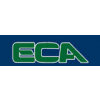What does a Pharmaceutical Representative do?
1 Answer(s)
Top Answer
Pharmaceutical Representatives, also known as drug reps, are salespeople who work for pharmaceutical companies. They promote the company's products to doctors and other healthcare professionals, working primarily in an office environment. They also travel to meet with potential customers, working the typical 9 to 5 but sometimes after hours.
How these professionals spend their day may depend on the individual or the company they represent. Most will spend considerable time on the road, attending conferences and visiting existing and prospective customers to introduce new products. All sales positions require persuasiveness to intrigue their client base and sell a product. However, Pharmaceutical Reps need to be mindful of the drugs in question. Not all options could be suitable for all patients.
Before making a sale, the Pharmaceutical Rep might offer pamphlets, brochures, and other informational materials or perhaps provide a sample that physicians can distribute among eligible patients. After securing a sale, they will maintain a relationship with the client and build customer loyalty.
There are also some administrative tasks associated with this role. Sales should be appropriately documented and tracked, keeping regular records of purchases, like the quantity and medication type, what current clients are interested in for future purchases, and when they will need medications replenished. Continued learning is also imperative in this role. Reps should always stay up to date on the latest research developments in their field.
Average day of a Pharmaceutical Representative
Here’s a non-exhaustive list of everyday tasks Pharmaceutical Representatives are required to complete:
How these professionals spend their day may depend on the individual or the company they represent. Most will spend considerable time on the road, attending conferences and visiting existing and prospective customers to introduce new products. All sales positions require persuasiveness to intrigue their client base and sell a product. However, Pharmaceutical Reps need to be mindful of the drugs in question. Not all options could be suitable for all patients.
Before making a sale, the Pharmaceutical Rep might offer pamphlets, brochures, and other informational materials or perhaps provide a sample that physicians can distribute among eligible patients. After securing a sale, they will maintain a relationship with the client and build customer loyalty.
There are also some administrative tasks associated with this role. Sales should be appropriately documented and tracked, keeping regular records of purchases, like the quantity and medication type, what current clients are interested in for future purchases, and when they will need medications replenished. Continued learning is also imperative in this role. Reps should always stay up to date on the latest research developments in their field.
Average day of a Pharmaceutical Representative
Here’s a non-exhaustive list of everyday tasks Pharmaceutical Representatives are required to complete:
- Visit existing and prospective customers, usually Physicians and other health professionals, to introduce them to new products developed by their employers.
- Understand the specialization of each Physician they visit and anticipate their needs to present them with products that may be relevant and useful to them.
- Present product information, highlight features and benefits and inform clients about new developments.
- Develop summaries, graphs, and any visual aids used in sales demonstrations that will help boost the product’s credibility and showcase its qualities and assets.
- Answer any customer doubts related to the product’s use, price, regulations, and availability.
- Inform customers of promotions and quantity discounts.
- Prepare and administer sales contracts and agreements.
- Visit customers regularly after they have agreed to purchase and use their products to receive feedback on their effectiveness and present new product launches.
- Research and identify potential clients and partners through networking.
- Build and maintain relationships with current and potential clients and partners.
- Liaise with other Pharmaceutical Representatives through medical, healthcare, and other related conferences, summits, and symposiums.
- Analyze and report sales, call activity, programs, and budgets regularly.
- Stay current on new products, pharmacy regulations, treatments, and developing trends in the market and with rival products.
- Keep up-to-date with medical and scientific developments, as well as any related procedures, policies, and regulations.
- Review information about new and existing products to acquire in-depth knowledge of their features and uses.
- Monitor sales, prices, and products of their competitors.
Related Questions
Related Jobs





